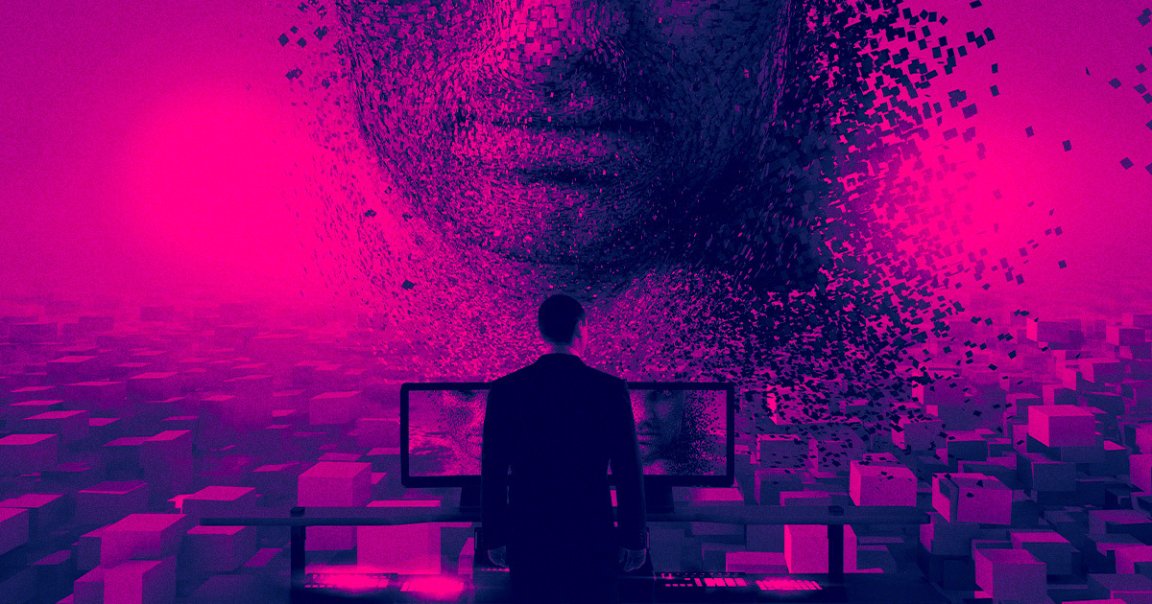
Wondering if artificial intelligence will be taking your job anytime soon? We’re sure we speak for a lot of folks when we say: same.
Considering that AI is literally designed to model human capabilities and thus automate human tasks, it’s a fair question — and one that a group of professors from New York University (NYU), Princeton, and the University of Pennsylvania (UPenn) may have just helped to shed a little bit of light on in a new paper, aptly titled “How Will Language Modelers like ChatGPT Affect Occupations and Industries?”
Though the paper has yet to be peer-reviewed, the results are fascinating, not to mention ominous — especially, of course, for the folks most at risk.
“We find that the top occupations exposed to language modeling include telemarketers and a variety of post-secondary teachers such as English language and literature, foreign language and literature, and history teachers,” write the researchers. “We find the top industries exposed to advances in language modeling are legal services and securities, commodities, and investments.”
So, to recap: our teachers and our financial services, according to these researchers, might just be the first to succumb to language-modeling AI like ChatGPT, which we should probably note is bad at both providing factual information, which probably isn’t good for the “teaching” part, and also is very bad at math, which similarly doesn’t behoove success in the realm of finance. Cool cool cool.
The researchers — NYU Stern’s Rob Seamans, Princeton computer scientist Ed Felten, and the Wharton School of Business’ Manav Raj — used a methodology that they actually developed back in 2018, which as noted in that study’s abstract, was constructed by “estimating which occupational descriptions [had] changed the most due to advances in AI between 2010 and 2015.”
“The key insight was to map ten areas in which AI was advancing (image recognition, speech recognition, language modeling, abstract strategy games, etc) to 52 abilities used in occupations,” Seamans posted in a Twitter thread, speaking of the newly-published paper, explaining that such data could then be cross-referenced with information from the US Department of Labor’s O*NET to examine the “importance and prevalence” of each of those distinguishable abilities in over 800 currently-human-executed occupations.
“The result was an AI Occupational Exposure score,” Seamans continued , “which we call AIOE.” And basically, the higher the AIOE, the greater the chance that automation takes over your industry.
The “why” of high AIOE levels vary across the highest-ranking offenders — as it probably should, considering that the occupations and industries that top the list vary greatly. Educators, for example, may rank highly because of how language modeling AI might continue to change the way teachers “assign work,” “detect cheating, or use the programs to “develop teaching materials.” (Here feels like a good time to note that AI is currently very, very bad at teaching history, one of the top-ranked teaching jobs to go the way of the AI.)
And elsewhere, in regard to why telemarketers, noted as the occupation most likely to be handed to the machines, the researchers make a particularly salient — and honestly, a little bit chilling — point: even if there’s a compelling case to be made for human-AI collaboration, labor dynamics will likely mean the humans will just get replaced. After all, a lot of bosses have started replacing their employees with machines already.
“One might imagine that human telemarketers could benefit from language modeling being used to augment their work,” reads the study. “For example, customer responses can be fed into a language modeling engine in real time and relevant, customer-specific prompts quickly fed to the telemarketer. Or, one might imagine that human telemarketers are substituted with language modeling enabled bots.”
“The potential for language modeling to augment or substitute for human telemarketers work,” the researchers continue, “highlights one aspect of the AIOE measure: it measures ‘exposure’ to AI, but whether that exposure leads to augmentation or substitution will depend on specifics of any given occupation.”
More on AI and employers: Bosses Say They’re Already Replacing Workers with AI